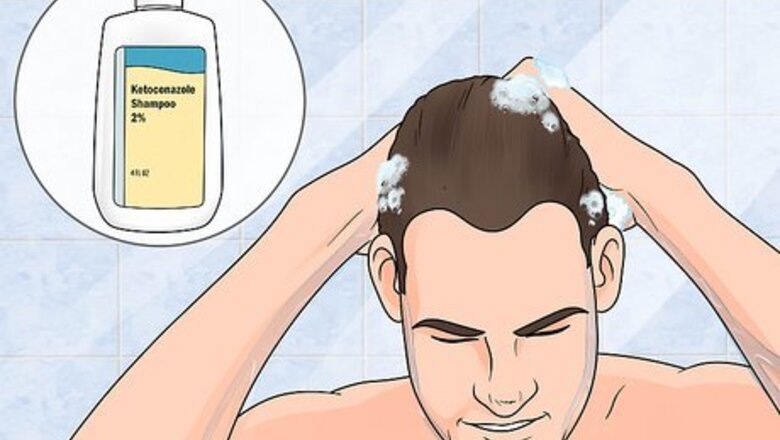
views
Wash your hair with ketoconazole shampoo.
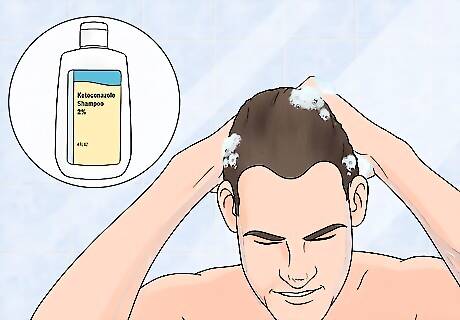
It’ll keep your scalp healthy and may promote hair growth. Ketoconazole is a medicine that’s used to treat a variety of conditions from fungal infections to dandruff. Use a 2% ketoconazole shampoo twice a week to boost your scalp health. There’s also some evidence that it may help treat male pattern hair loss. You can find ketoconazole shampoo at your local pharmacy. Popular brands include Nizoral and Sebizole. You can also order it online.
Use hair products that add volume to your hair.

They can make your hair loss less noticeable. While they may not actually reverse hair loss, volumizing products can make your hair look more full and robust. Try volumizing shampoos and conditioners as well as serums and sprays. Apply them to your hair following the directions on the packaging for the best results. Look for hair products that are labeled as “volumizing” or “thickening.” Volumizing products can also be a useful way to boost the appearance of your hair while you use other treatments to help encourage new hair growth.
Apply minoxidil (Rogaine) to your scalp.
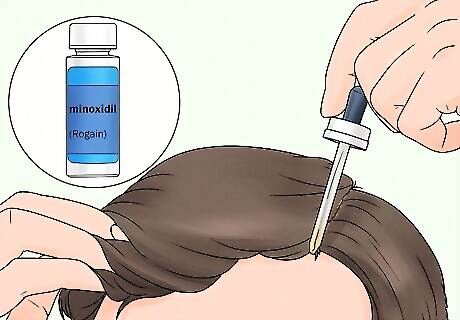
It can help you grow new hair. Minoxidil is a solution that you apply directly to your scalp as a cream or liquid. Pick some up from your local pharmacy or order some online. Apply the product directly to your scalp following the directions on the packaging. Minoxidil stimulates your hair follicles and slows down hair loss for many people. Some actually start growing new hair. Keep in mind that when you stop using minoxidil, your hair loss will return.
Take finasteride (Propecia, Prosacr) to slow down hair loss.

Talk to your doctor to see if it’s right for you. Finasteride works by actually interfering with the way your body produces a certain form of testosterone that is linked to hair loss. Make an appointment to see your doctor and talk to them about your hair loss. If they prescribe finasteride for you, take it according to the dosing recommendations for the best results. Because finasteride affects your hormones, it’s important that you check with your doctor first to make sure it’s safe for you. Finasteride may actually be more effective than minoxidil for slowing down hair loss, but just like minoxidil, your hair loss will return if you stop using it.
Try dutasteride as an alternative to finasteride.

It may actually even be more effective. Dutasteride works similarly to finasteride in that it affects how your body produces hormones that can cause hair loss. Ask your doctor if dutasteride is a good treatment option for you. If they prescribe it for you, take the dutasteride according to the directions on the bottle for the best results and to reduce any potential side effects. Just like finasteride, you need to talk to your doctor about it first. They’ll be able to determine which product is the best choice for you as some men respond differently to different products. If you stop using finasteride, your hair loss will return.
Find ways to reduce your stress.

You may actually be able to grow your hair back. Stress and hair loss are directly related. In fact, high levels of stress can cause multiple types of hair loss. The good news is there are plenty of ways you can get your stress under control. Try exercising regularly and using relaxation techniques such as deep breathing and meditation. You can also try finding ways to reduce things that trigger your stress, such as keeping yourself organized and managing your time more effectively. You can also work with a therapist, counselor, or psychologist. They’ll give you tips and strategies you can use to reduce the stress in your life.
Quit smoking if you do.
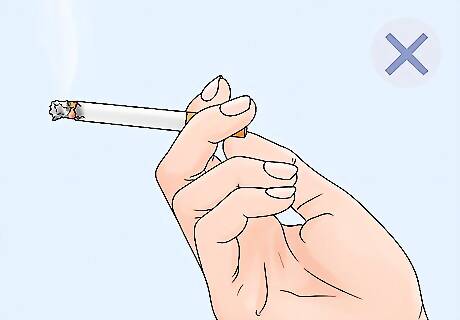
There’s a link between smoking, premature skin aging, and hair loss. Cigarette smoke may damage your hair follicles and affect blood flow in your scalp, which can contribute to hair loss. If you do smoke, it’s never too late to quit. You’ll be much healthier and your hair may even grow back! It’s also never been easier to quit. There are a variety of products and medications out there that can help you do it. Talk to your doctor if you need some assistance.
Cut back on drinking alcohol.

Excessive drinking may contribute to hair loss. Studies suggest that having more than 4 drinks a week is associated with increased hair loss. In fact, abstinence from alcohol may actually boost your hair growth. If you do decide to drink, try to do it in moderation. Your hair may thank you for it!
Try laser therapy to improve hair density.
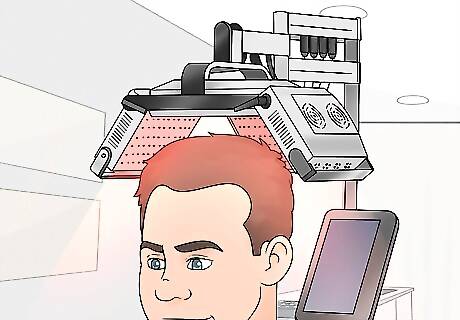
It may be a viable treatment for thinning hair. While more studies are needed to understand the long-term effects, some studies suggest that low-level laser light may be effective for hair loss in people of any sex. Talk to your doctor to see if it’s a good treatment option for you. They may be able to do the procedure in their office, or they may refer you to a specialist who can do it.
Get hair transplant surgery.
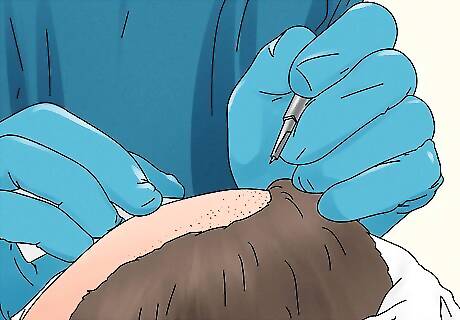
Make the most of the hair you have left. Hair transplant surgery involves removing hair from one part of your scalp (where it’s thicker) and implanting it into patchy areas to make your hair look more full. Make an appointment with a dermatologist or a cosmetic surgeon. If they believe you’re a good candidate for the procedure, they’ll be able to perform it for you in their office. It may take multiple procedures to get the effect that you want. Keep in mind that you may continue to lose your hair even after getting hair transplant surgery.
Consider micropigmentation for your scalp.
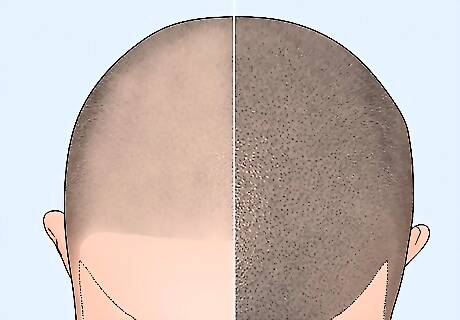
It’s a good option if you like the look of close-cropped hair. Micropigmentation is essentially tattooing your skin. It’s a procedure that involves using tiny needles to insert pigment into your skin, and you can have it done on your scalp to give the effect of a shaved head with stubble and an even hairline. See a dermatologist or cosmetic specialist that offers micropigmentation if you’re interested.
Talk to your doctor if you have sudden hair loss.
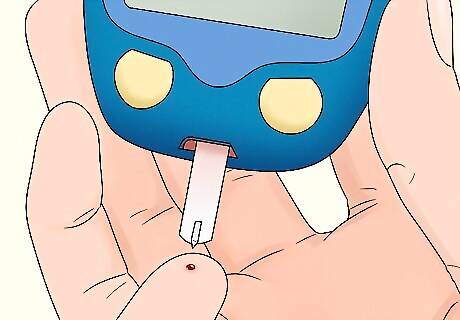
Make sure there isn’t an underlying condition that’s causing it. While it’s often normal for men to start losing their hair over time, if you suddenly start having a lot of hair falling out, there could be a deeper issue. See your doctor so they can examine you and run tests to determine whether or not something else is causing your hair loss. For instance, some medical conditions, such as diabetes and lupus, can cause hair loss.


















Comments
0 comment